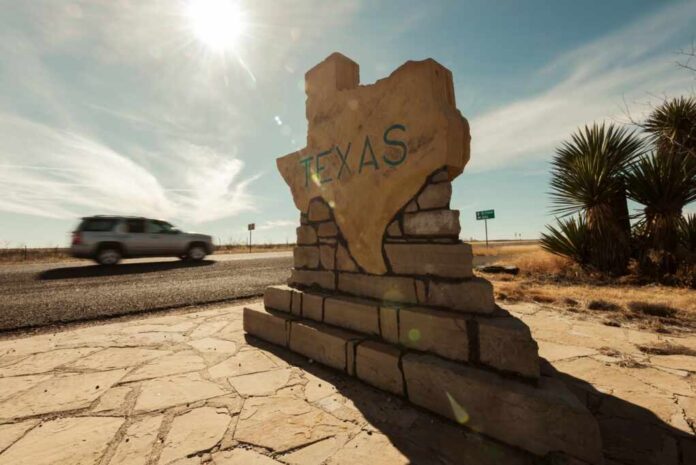
House Republicans have passed a key provision in Trump’s tax bill that would reimburse Texas $12 billion for its border security expenses amid ongoing disputes over federal immigration policy.
At a Glance
- The $12 billion border security reimbursement is part of President Trump’s “One Big Beautiful Bill”
- Texas has spent over $11 billion on Operation Lone Star since March 2021 to address border security
- The provision was added after months of negotiations led by Texas’s congressional delegation
- The bill passed the House by a single vote and now heads to the Senate
- Governor Abbott praised the measure while criticizing the Biden administration’s border policies
Texas Border Funding Reimbursement
A significant new provision in President Trump’s comprehensive tax legislation allocates $12 billion to reimburse Texas for its extensive border security operations. The measure, included in what House Republicans call “one big, beautiful bill,” passed the chamber by just one vote after last-minute negotiations. The funding aims to compensate Texas for expenditures related to Operation Lone Star, a state-led border security initiative launched in March 2021 in response to what Texas officials describe as federal inaction on immigration enforcement.
The reimbursement program creates a grant mechanism specifically designed for states that have taken on border security responsibilities traditionally handled by the federal government. Texas leads these efforts, having allocated more than $11 billion in state taxpayer funds toward border security measures over the past three years. The provision was added through a “managers amendment” shortly before the final vote, following persistent advocacy from Texas’s congressional delegation.
— Federation for American Immigration Reform (@FAIRImmigration) May 7, 2025
Governor Abbott’s Response
Texas Governor Greg Abbott issued a statement expressing gratitude for the House passage of the reimbursement provision. The governor has consistently maintained that Texas was forced to act due to federal policy failures at the southern border. Operation Lone Star, which deployed state troopers and National Guard members to the border region, represents the cornerstone of Texas’s response to what Abbott characterizes as a border crisis requiring immediate state intervention.
“Former President Biden’s reckless open border policies left Texas and the rest of America defenseless against an unprecedented surge of illegal immigration, requiring Texas to hold the line,” said Governor Abbott.
The governor further explained his motivation for launching Operation Lone Star and his continued pursuit of federal reimbursement. “In March 2021, I launched Operation Lone Star to fill in the dangerous gaps created by the Biden Administration’s refusal to secure the border. Under Operation Lone Star, Texas allocated more than $11 billion of Texas taxpayer money for border security, and earlier this year I requested Congress reimburse Texas for these costs in full,” Abbott stated. He acknowledged the work is not yet complete, as the legislation must still clear the Senate.
Other Key Elements of the Bill
Beyond the Texas border reimbursement, Trump’s tax legislation contains numerous additional provisions. The bill extends the 2017 Tax Cuts and Jobs Act while implementing new tax reductions, including temporary exemptions on tips and overtime through 2028. It also raises the State and Local Tax Deduction cap to $40,000 for households earning up to $500,000 annually, creates $1,000 “Trump Accounts” for children born between 2024 and 2028, and eliminates a $200 tax on firearm silencers.
The comprehensive legislation allocates $46.5 billion for border wall construction and additional funding for Border Patrol agents. It introduces a 3.5% tax on remittances sent out of the country, reduced from an initially proposed 5% in final amendments. Additionally, the bill implements Medicaid reforms, including work requirements for able-bodied adults without children, more frequent eligibility verification, and restrictions on coverage for undocumented immigrants and certain medical services.
Legislative Path Forward
The bill’s narrow House passage represents only the first step in a complex legislative process. Using the budget reconciliation mechanism, Republicans aim to advance the legislation through the Senate with a simple majority rather than the typical 60-vote threshold required for most bills. Both chambers must ultimately pass identical versions before the legislation can be sent to the President for signature.
For Texas officials, the $12 billion reimbursement represents validation of their persistent claims that border states have unfairly shouldered financial burdens resulting from federal policy decisions. Whether the provision survives Senate consideration remains to be seen, as the chamber will conduct its own review and potentially make adjustments to the House-passed version in the coming weeks.

























